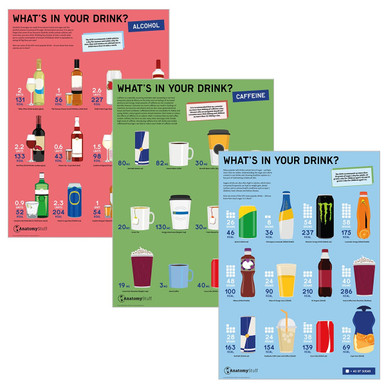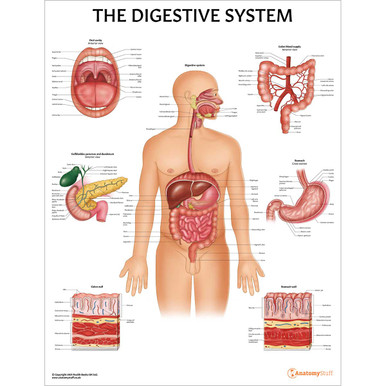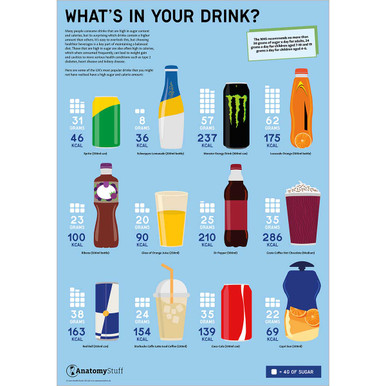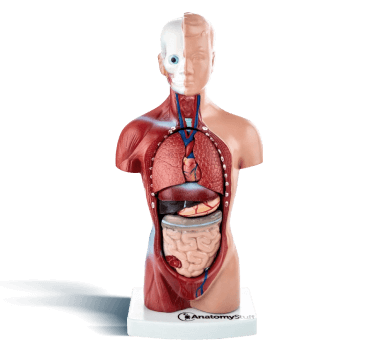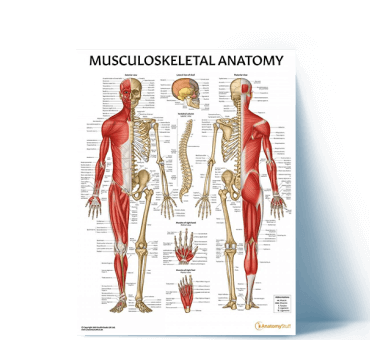Health Benefits of Drinking Water
Every cell, tissue and organ in your body needs water to work. Composed of hydrogen and oxygen, water is a pure and free drink with many health benefits that we will list below.
What are the benefits of drinking water?
• Hydrates the body and prevents dehydration.
• Decreases the chances of constipation; by increasing fluids, we decrease the likelihood of becoming constipated.
• Regulates our body temperature.
• Good for joints by keeping them lubricated and therefore cushions them.
• Boosts your skin and hair health.
• Gets rid of wastes through urination, perspiration and bowel movements.
• Can help with weight loss by filling us up, therefore, decreasing appetite and sugar cravings. Our brain can’t tell the difference between hunger and thirst, so often we mistake thirst for a sugar craving, so next time you want something sweet, grab a glass of water first.
• Boosts memory and can actually boost your mood. Dehydration affects mood, concentration and memory.
• Essential for kidneys and regulating blood pressure. A lack of water can lead to elevated blood pressure as the blood thickens and increases the pressure.
• Boosts performance during exercise.
• Protects sensitive tissues.
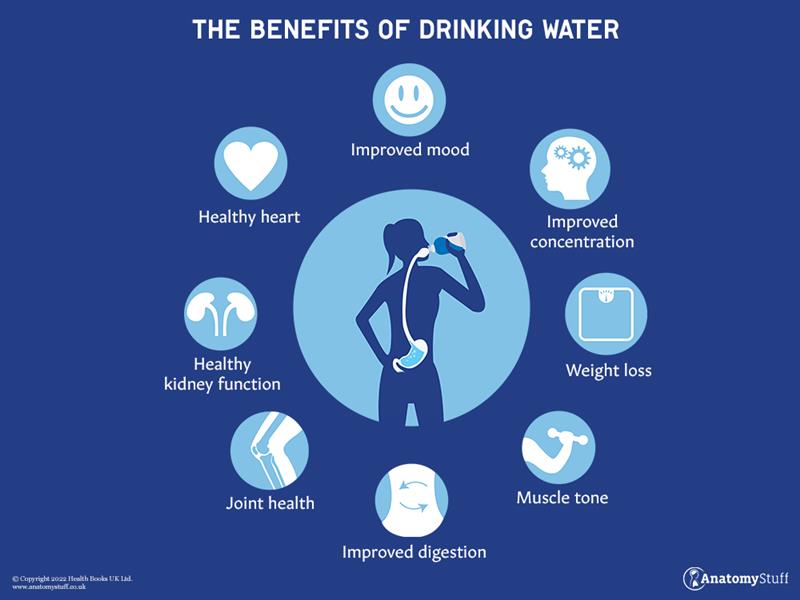
Tips to Drink More Water:
• Bring your favourite water bottle with you and refill it as you go.
• Choose water over sugary drinks – try to think of the benefits to your health.
• Choose water when eating out, which will save money and reduce calorie intake.
• Serve water during meals, and have a few sips before meals if you are trying to manage a weight problem.
• Try a slice of lime or lemon to your water. This can help improve the taste. There are several flavoured waters available, too, if you simply don’t like the taste of plain water.
Not sure if you’re drinking enough?
If you want to know if you are taking in enough water/fluids, well, you probably are if:
• you don’t feel thirsty too often.
• your urine is either light yellow or clear.
The NHS recommend the average adult consume 6-8 glasses or cups of hydrating fluid each day. This includes lower-fat milk and low-sugar or sugar-free drinks, tea and coffee. However, this can vary dependent on your age, gender, activity, the weather, if you are exercising enough, etc.
Related products
View All